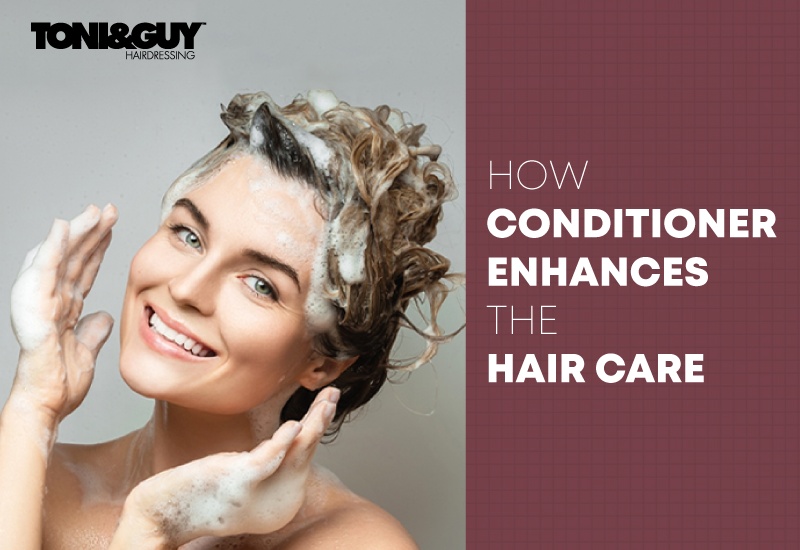
Introduction
Using a conditioner after a hair wash is no surprise. But have you ever wondered how conditioner enhance your hair?
People often ask questions such as, ‘Why should I use a conditioner?’ ‘What does it really do to my hair?’ and ‘Is it safe?’. This article is dedicated to all those with these questions. Let’s unwrap the genie secrets within the conditioner bottle.
Starters may wonder what a conditioner is. Let’s put it simply; conditioner is a moisturiser for hair generally made of silicones, oils, emollients, and cationic surfactants, a surfactant formula that helps wash oily elements.
There are various types of conditioners, too, and the most common ones are: deep conditioner, which can be applied and left for longer; cleansing conditioner, a hybrid product that cleanses and conditions hair simultaneously; leave-in conditioner, a rinse-free conditioner that does not needs hair wash after application, and dry conditioner, a replacement for traditional conditioner, but be careful as it may leave a coating on certain hair types.
Now that you know what a conditioner is, let’s dig deeper into what it does and how you can benefit.
ALSO CHECK : Simple Hair Care Routine For men
Benefits of Using Conditioner
We encounter people who think conditioner is a luxury step. But we need them to rethink. Using a conditioner after a hair wash has countless benefits. Brushing, sun exposure, and pollution can all cause significant damage to our hair. A conditioner after a hair wash prevents your hair from such damage by covering them in a protective layer that covers those small areas of damage and reduces further damage.
Using conditioners has many advantages for your hair, such as:
- Reducing inner friction between hair shafts that causes tangles and breakage.
- Balancing negative electrical charges on hair fibre that makes hair frizzy and dull.
- Enhancing hair shine and smoothness by sealing the cuticle layer and locking in moisture.
- Protecting hair fibre surfaces from environmental damage and heat styling tools.
- Repairing split ends with protein-derived elements that bond with the keratin in your hair.
Isn’t this wonderful? For sure, but the downside is that choosing the right conditioner that suits your hair type and needs can be tricky.
Choosing the Right Conditioner
Conditioners are designed to meet the needs of specific hair types and problems. Some work well for all hair types, while others are designed for straight, wavy or curly hair. Don’t be afraid; we got your back.
Choosing the right conditioner can make a big difference in enhancing your hair’s looks and feels. Some gentle conditioning tips:
- Thick, curly or coarse hair: Hydrating, moisturising or smoothing conditioners will help your hair shine and soften your hair.
- Fine or limp hair: Volumizing or lightweight conditioners will boost your hair’s body and lift it without weighing it down.
- Damaged or weak hair: Strengthening conditioners will restore your hair’s health and prevent further breakage.
- Oily or greasy hair: Balancing conditioner will remove extra oil and dirt from your scalp and hair without stripping away natural moisture.
Pick a conditioner that suits your curl type if you have curly hair. Different curl type needs different care and treatment. For a say,
- If you have type 2 curls (wavy), you should steer clear of anything too heavy, like waxes or creams that may weigh down your waves. You may also want a leave-in conditioner to define and enhance your curls.
- If you have type 3 curls (curly), you should look for conditioners rich in moisture and protein to nourish and strengthen your curls. Use a deep conditioner once a week to prevent dryness and frizz.
- If you have type 4 curls (coily), you should look for conditioners that are ultra-moisturizing and detangling to hydrate and soften your coils. You may also want a co-wash (conditioner-only wash) to cleanse and condition your hair in one step.
We hope this helped you choose the conditioner that suits you best. Let’s move on to how to use conditioner after a hair wash.
How to Use conditioner after a hair wash?
Warning, if you think this section is for starters. Many of us believe it’s an ‘easy peasy’ to apply conditioner. Just apply conditioner after a hair wash and rinse it out. It may seem quick and simple, but that’s not how conditioner works.
Before you apply your conditioner, squeeze out the excess water from your strands because this excess water can dilute your conditioner, resisting your hair from soaking up moisturising ingredients.
According to professionals, conditioners take around two to three minutes to moisturise your hair. Next time when you condition your hair, try this. Start with squeezing excess water from the roots down. Then with the required amount of conditioner, massage your hair in long fluid motions from the mid-lengths to the end of the hair. Use your comb or your fingers to remove tangles, if any. Then allow the conditioner to stay for two to three minutes before rinsing your hair.
P.S.: The time taken for your conditioner to work may vary depending on the product. Always check your conditioner bottle to know information about how long to leave.
Common Mistakes People Make
Since the world is running in a fast phase, it doesn’t mean we have to run along, sacrificing the health of our hair. Here are the most common mistakes people make while conditioning their hair:
Conditioning Scalp
One common mistake is considering hair oil and conditioners equally. Conditioners are no hair oil to be applied on the scalp. Scalp, naturally, can produce sebum required for its nourishment and hydration. Henceforth, applying your conditioner from mid-lengths to the tip of your hair is best.
Excessive or Insufficient Usage
Both over-conditioning and not-conditioning can cause damage to your hair. Over conditioning can make your hair oily or greasy. On the other hand, not conditioning your hair can cause dryness leading to splits and frayed ends.
Rinsing Immediately or Not thoroughly
According to professionals, your conditioner takes two to three minutes to work at its best. At the same time, if you rinse your hair immediately after applying, the conditioner will not get enough time to moisturise your hair.
Seek Professional Advice at Toni&Guy
Haircare is best done when you seek a bit of professional advice; we, Toni&Guy, are dedicated to ensuring the quality of assistance you get.
From hair spas to keratin, we offer expert touch with skilled professionals dedicated to your hair and beauty needs. Visit your nearest Tony&Guy salon now and get the professional advice you need.
Final Thoughts
Using a conditioner after a hair wash is not a luxury but an essential part of your hair care routine. You can get optimal results only when you choose the right conditioner for your hair type.
By following the tips listed in this article, you will be able to get a precise idea of which hair conditioner to choose. Remember always to check the label and the ingredients used in any of your hair care products.
Ultimately, taking care of your hair by using a conditioner can be a simple yet effective way to keep your locks looking healthy and beautiful. So go ahead, and add that extra non-luxury step to your hair care routine for luscious, silky hair.
FAQs
1. Can conditioner increase hair volume?
A volumizing conditioner can increase hair volume. However, conditioner alone may not be enough to increase your hair volume. Adding volumizing shampoo, round brush, backcombing to your hair care routine can further help you increase the volume of your hair.
2. Can I use conditioner without shampoo?
Dry conditioner, a replacement for traditional conditioner, can be used without shampoo.
3. What happens if we use too much conditioner?
Over-conditioning can make your hair oily or greasy. Also over conditioning can reduce your hair’s natural volume, making it look thin and heavy.
4. Can conditioner change hair texture?
Theoritaically, use of conditioner can change the texture of your hair but it purely depends on how you use it and what type of hair you have.
5. Can I use conditioner after oiling my hair?
It is not restricted to avoid conditioner after oiling but use of conditioner after oiling may not be beneficial for your hair.


